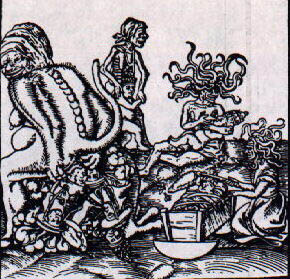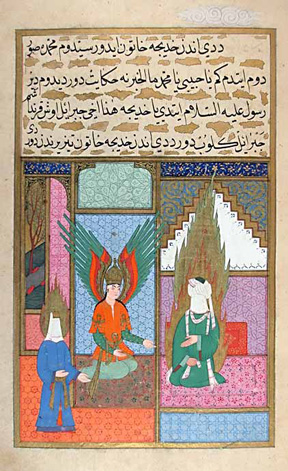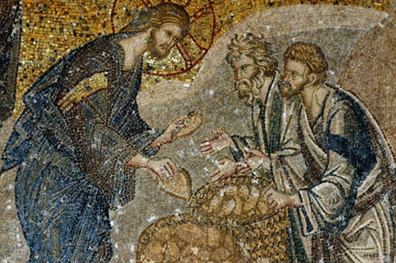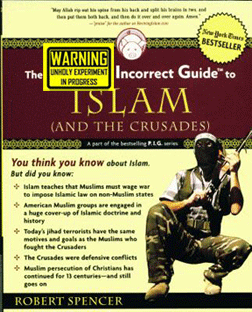
Birth and Origin of the Pope by Lucas Cranach, illustration for Martin Luther’s “Against the Papacy at Rome, Founded by the Devil,” 1545
Satire is Religion
By Austin Dacey, Religion Dispatches, May 12
Scatological humor. Crude drawings mocking revered religious figures. I am speaking, of course, of Lucas Cranach’s Birth and Origin of the Pope [image above], one in a series of woodcuts commissioned by Martin Luther in the 1540s under the title “The True Depiction of the Papacy.†In it, an enormous grinning she-devil squats in the foreground, excreting the Pope along with a heap of bishops while in the background another infant pontiff suckles at the teat of a serpent-haired wet nurse.
Forget the South Park dust up; forget Everybody Draw Muhammad Day. If you want to see truly shocking anti-religious cartoons, you have to go back to the sixteenth century. Near the end of Luther’s life, his propaganda campaign against Rome grew increasingly vitriolic and his language grotesquely pungent. He took to calling his ecclesiastical enemies ‘asses,’ ‘dogs,’ ‘pigs,’ ‘blockheads,’ ‘basilisks,’ and ‘pupils of Satan,’ and the Pope himself ‘Her Sodomitical Hellishness’ and ‘fart-ass’ (no, it doesn’t sound much more dignified in German—fartz-Esel). Eric Cartman would be in awe. Continue reading Satire is Religion






